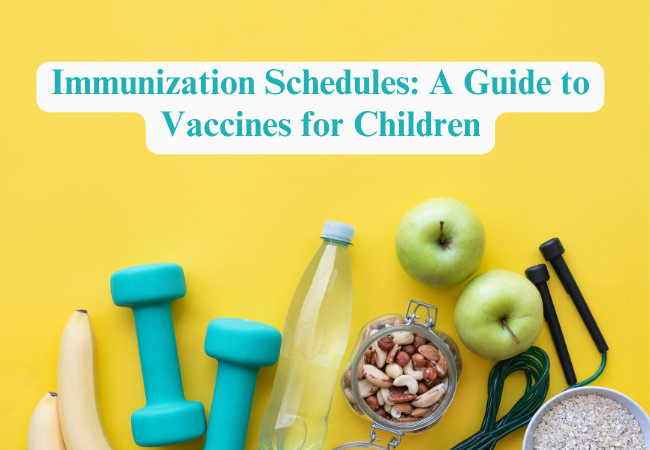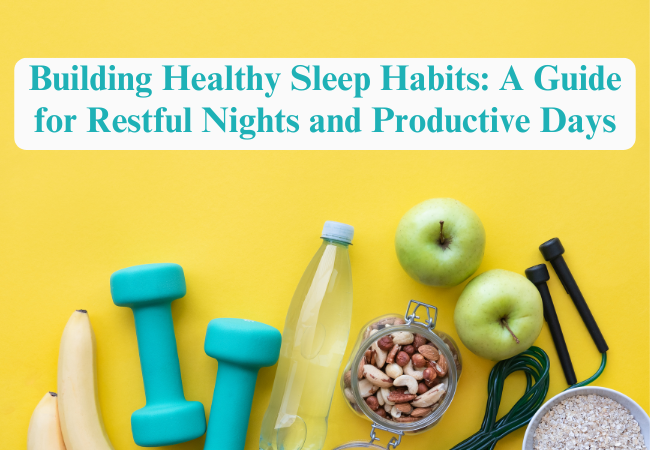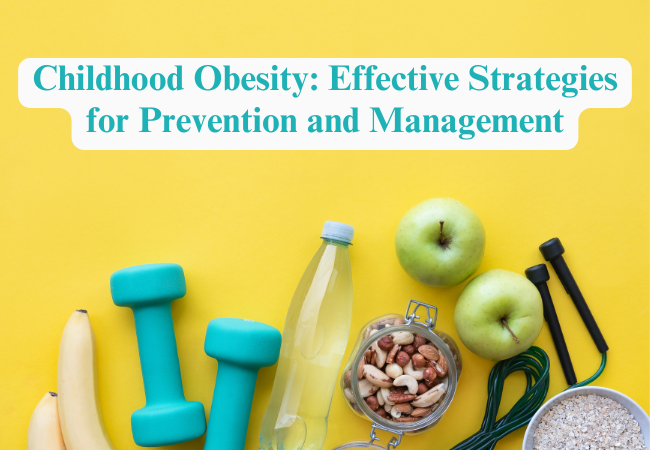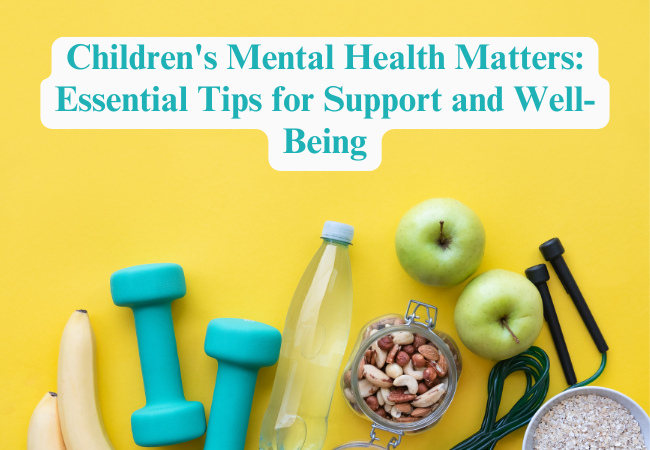Children’s Health Tips: Ensuring a Happy and Healthy Life
Discover essential children’s health tips to ensure your child’s well-being. Learn about nutrition, exercise, mental health, and preventive care for a happy and healthy life.
As a parent, your children’s health is a top priority. Keeping kids healthy involves more than just treating illnesses – it’s about creating habits and environments that promote overall well-being. This guide will provide you with practical tips to ensure your child grows up happy and healthy.
The Importance of Children’s Health

Childhood is a crucial time for physical, mental, and emotional development. Good health habits formed early can last a lifetime.
Let’s explore key areas of children’s health:
- Nutrition
- Physical Activity
- Sleep
- Mental Health
- Preventive Care
Nutrition: Fueling Growing Bodies
Proper nutrition is essential for growth, development, and overall health.
Here are some tips for healthy eating:
1. Balanced Diet
- Offer a variety of fruits and vegetables
- Include whole grains, lean proteins, and healthy fats
- Limit processed foods and sugary drinks
2. Regular Meals and Snacks
- Establish a consistent meal schedule
- Provide healthy snacks between meals
3. Lead by Example
- Eat meals together as a family
- Model healthy eating habits
4. Stay Hydrated
- Encourage water as the primary drink
- Limit juice and avoid sodas
Remember, forcing kids to eat can lead to unhealthy relationships with food. Instead, offer a variety of healthy options and let them choose.
Physical Activity: Moving for Health
Regular physical activity is crucial for children’s health. It helps with:
- Weight management
- Bone and muscle strength
- Cardiovascular health
- Mental well-being
Tips for Encouraging Physical Activity
1. Make it fun:
- Choose activities your child enjoys
- Vary the types of activities
2. Set a good example:
- Be active yourself
- Engage in physical activities as a family
3. Limit screen time:
- Set rules for TV, computer, and phone use
- Encourage outdoor play
4. Support organized sports:
- Enroll in age-appropriate sports or classes
- Focus on fun and participation, not competition
Remember, children should get at least 60 minutes of moderate to vigorous physical activity daily.
Sleep: The Foundation of Health
Adequate sleep is crucial for children’s growth, learning, and overall health.
Sleep Requirements by Age:
- Toddlers (1-2 years): 11-14 hours
- Preschoolers (3-5 years): 10-13 hours
- School-age (6-13 years): 9-11 hours
- Teens (14-17 years): 8-10 hours
Tips for Better Sleep:
- Establish a bedtime routine:
- Consistent bedtime and wake-up times
- Calming activities before bed (reading, soft music)
- Create a sleep-friendly environment:
- Dark, quiet, and cool room
- Comfortable bed and pajamas
- Limit screen time before bed:
- No screens at least an hour before bedtime
- Keep devices out of the bedroom
- Avoid large meals and caffeine close to bedtime
Mental Health: Nurturing Emotional Well-being
Mental health is just as important as physical health. Here’s how to support your child’s emotional well-being:
1. Encourage open communication:
- Listen without judgment
- Validate their feelings
2. Teach coping skills:
- Deep breathing exercises
- Mindfulness techniques
3. Promote positive self-esteem:
- Praise effort, not just results
- Encourage trying new things
4. Limit stress:
- Help manage schedules and commitments
- Ensure downtime for relaxation and play
5. Watch for signs of mental health issues:
- Changes in mood, behavior, or sleep patterns
- Seek professional help if concerned
Preventive Care: Staying Ahead of Health Issues
Regular check-ups and preventive care can catch and address health issues early.
Key Aspects of Preventive Care:
1. Regular check-ups:
- Schedule annual well-child visits
- Keep vaccinations up to date
2. Dental care:
- Regular dental check-ups (every 6 months)
- Daily brushing and flossing
3. Eye exams:
- First exam before age 3
- Regular exams as recommended by your doctor
4. Skin protection:
- Use sunscreen (SPF 30 or higher)
- Wear protective clothing in the sun
5. Safety measures:
- Use appropriate car seats and seat belts
- Wear helmets for biking and other sports
Creating a Healthy Home Environment
Your home environment plays a crucial role in your child’s health. Consider these tips:
- Keep a smoke-free home
- Store medications and cleaning products safely
- Use child-safety locks and gates as needed
- Maintain a clean, allergen-free environment
- Have working smoke and carbon monoxide detectors
When to Seek Medical Help
While many childhood illnesses can be managed at home, certain symptoms warrant immediate medical attention:
- High fever (over 104°F or 40°C)
- Difficulty breathing
- Severe pain
- Uncontrollable bleeding
- Loss of consciousness
- Signs of dehydration
Always trust your instincts. If you’re worried about your child’s health, don’t hesitate to contact your healthcare provider.
Conclusion
Ensuring your child’s health involves a holistic approach that includes proper nutrition, regular physical activity, adequate sleep, good mental health practices, and preventive care. By implementing these tips and creating a healthy home environment, you’re setting the foundation for your child’s lifelong well-being.
Remember, every child is unique, and what works for one may not work for another. Be patient, flexible, and always consult with your pediatrician for personalized advice. With love, attention, and these healthy habits, you’re giving your child the best start for a happy and healthy life.
Parenting is a journey, and taking care of your child’s health is one of the most important parts of that journey. By focusing on these key areas, you’re not just preventing illness – you’re promoting overall wellness and setting your child up for a lifetime of good health habits.
For more information and guide, visit usaparentingtips.com






